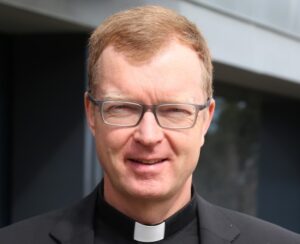Hans argues that this paternalism “has two sides: Both with those in the hierarchy not involving the gifts of a wide variety of faithful, and on the other hand, we have laypeople who enable a paternalistic attitude by believing bishops to be omniscient and having the power to affect immediate change.”
He insists that he is not questioning the principle that bishops must be held accountable. “What I wish to affirm is that every baptized person is co-responsible for the holiness of the Church and needs to be prayerful about that and take action so that the community of the Church is ever more a witness to the Gospel.”
Fr Zollner is head of the Pontifical Gregorian University’s Centre for Child Protection and a member of the Pontifical Commission for the Protection of Minors.
He also strongly believes that there is a need for developments in Catholic theology to help the church to understand and adjust to the abuse crisis.
“One of our main goals is to create a long-term theologically based conversation amongst theologians from around the world in regard to the abuse crisis. Often, we place total responsibility on psychologists and canon lawyers to take action when it comes to this issue, while ignoring the deep-rooted theological thought behind it as well. This is an attempt to build up more conversation around that, from a theological standpoint.
… What can a theological analysis of the abuse crisis offer to the Church, and to the efforts for child protection?”
Originally scheduled for March 11-14, a Rome conference entitled “Doing Theology in the Face of Abuse” had to be cancelled due to Italian government restrictions imposed in the wake of the coronavirus crisis.


0 Comments